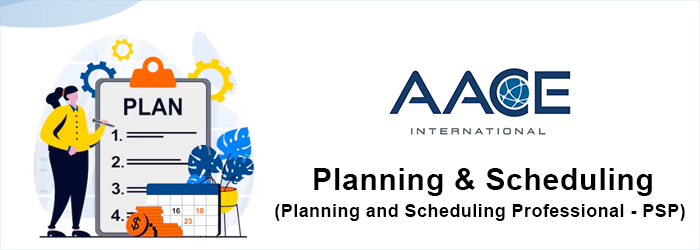Let's Chat!



The Planning and Scheduling Professional (PSP) Certification Preparation course is designed to equip individuals with the knowledge and skills necessary to excel in the field of project management, specifically in the areas of project planning, scheduling, and control. This comprehensive course is ideal for professionals seeking to enhance their project management expertise and earn the prestigious PSP certification from the Association for the Advancement of Cost Engineering International (AACE International).